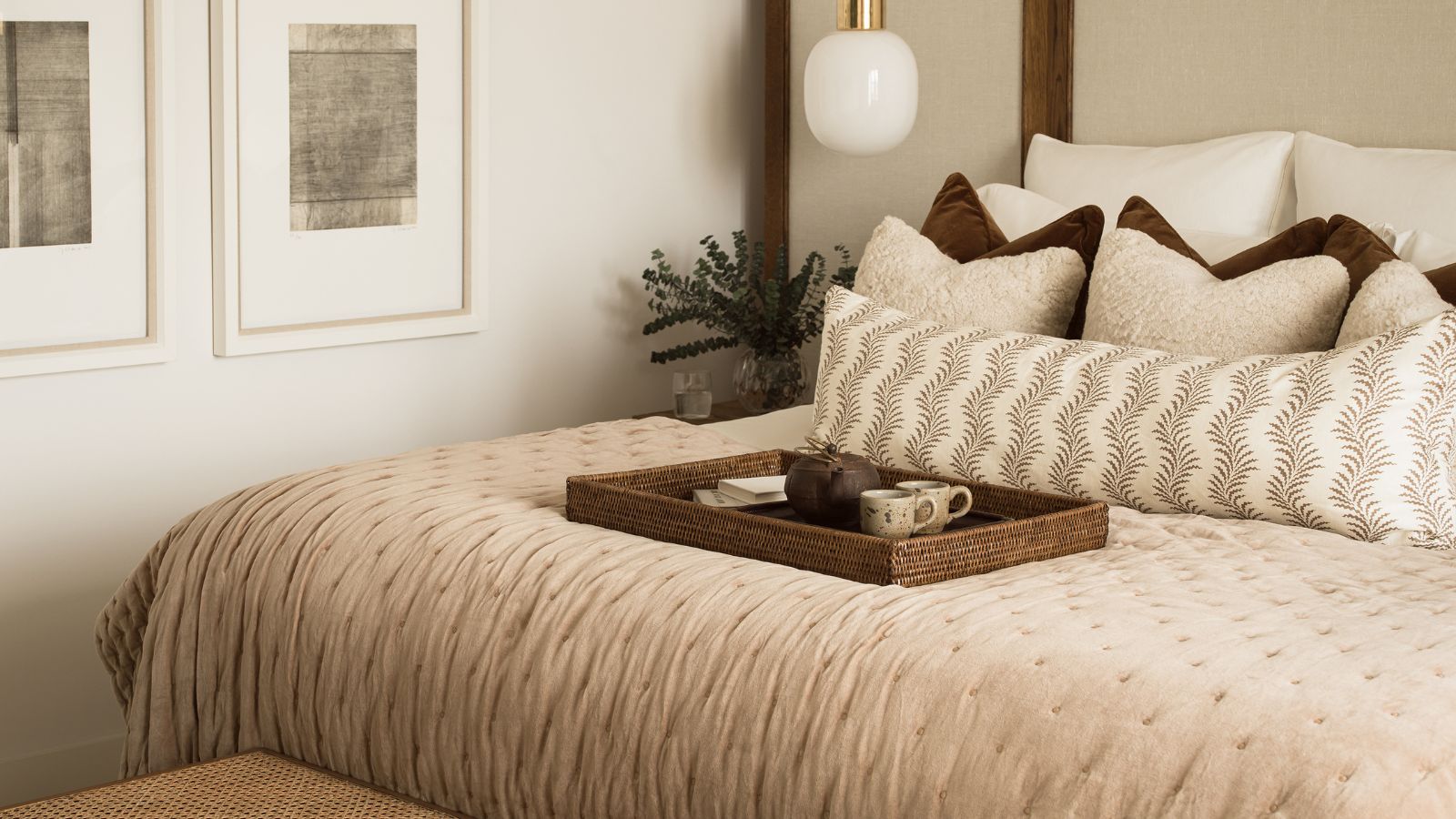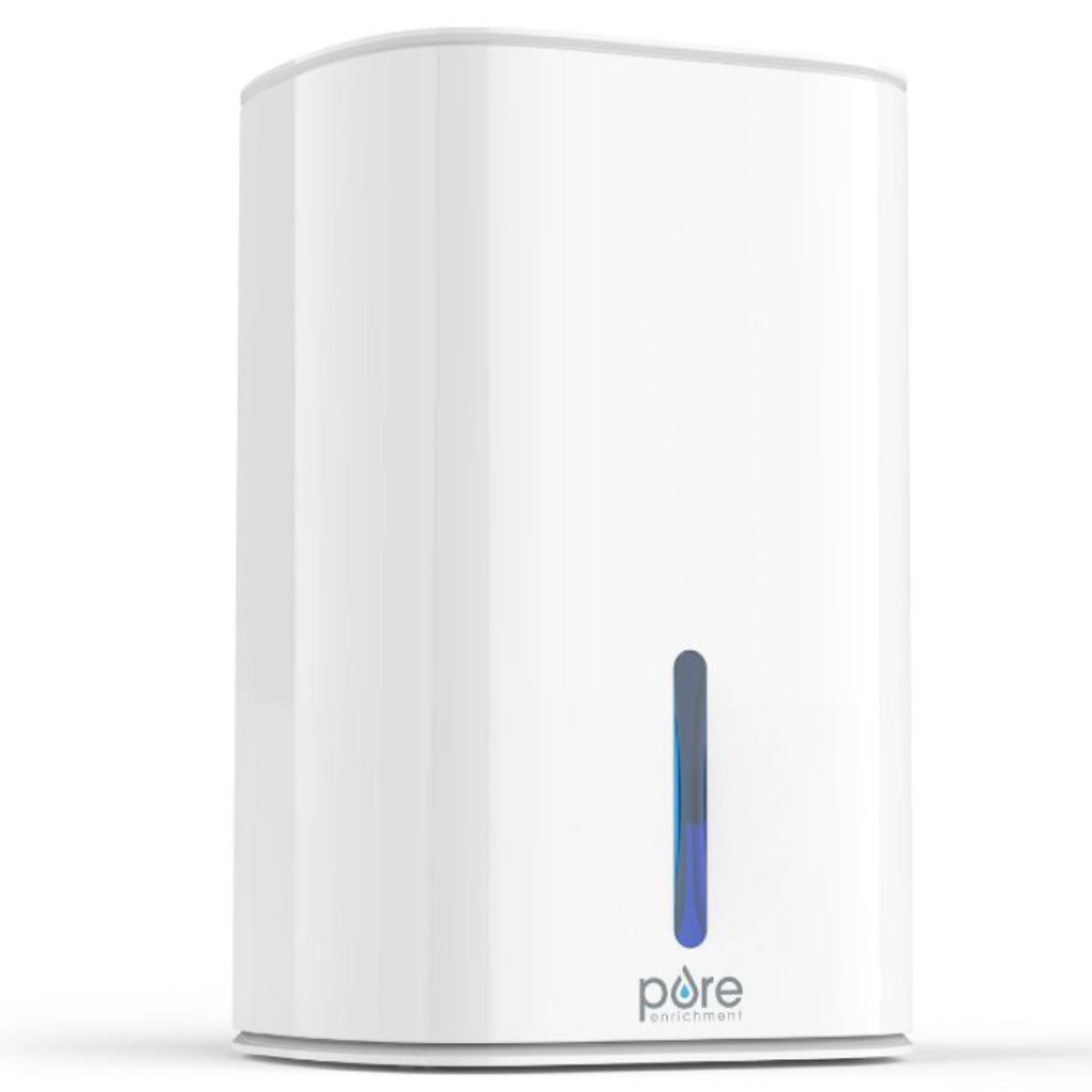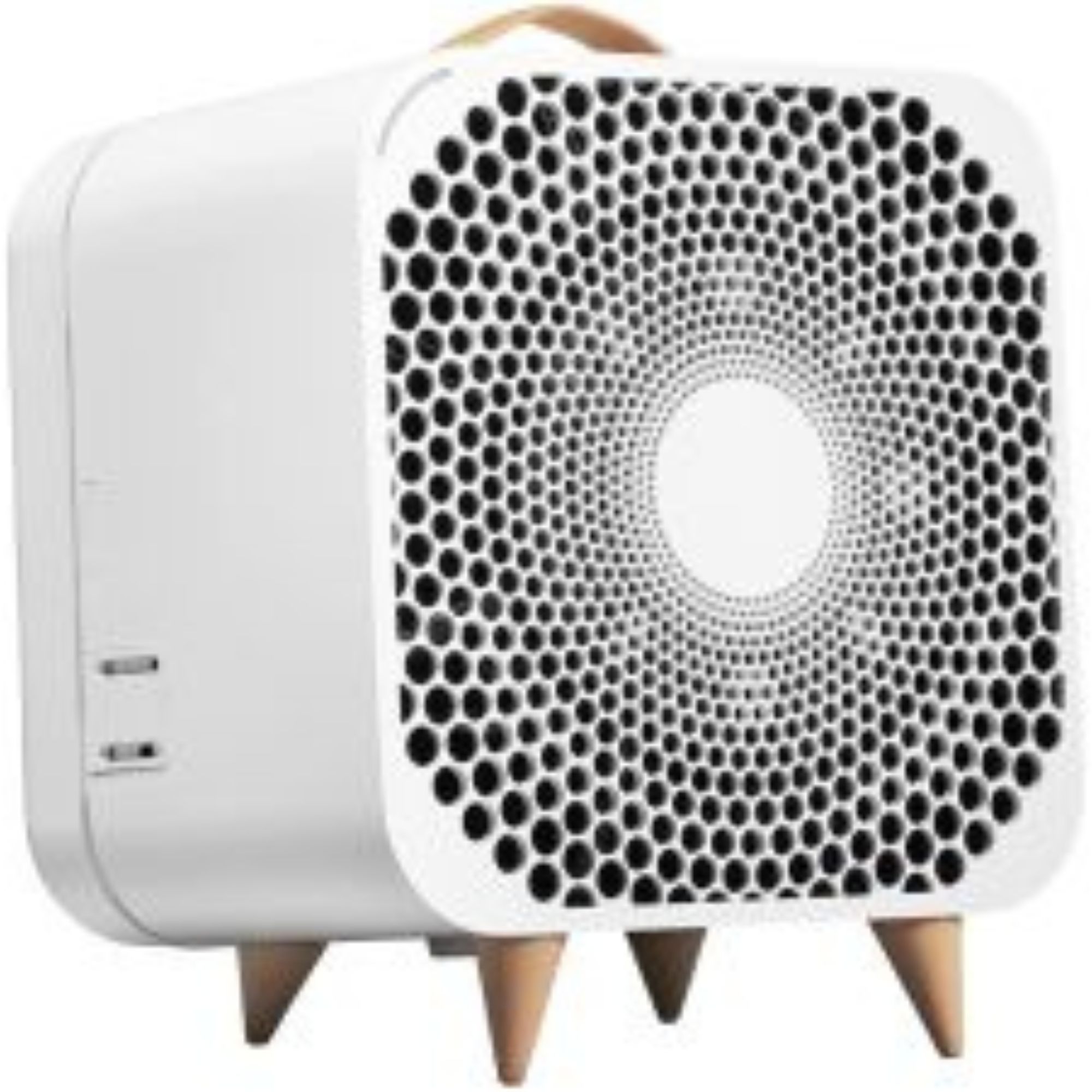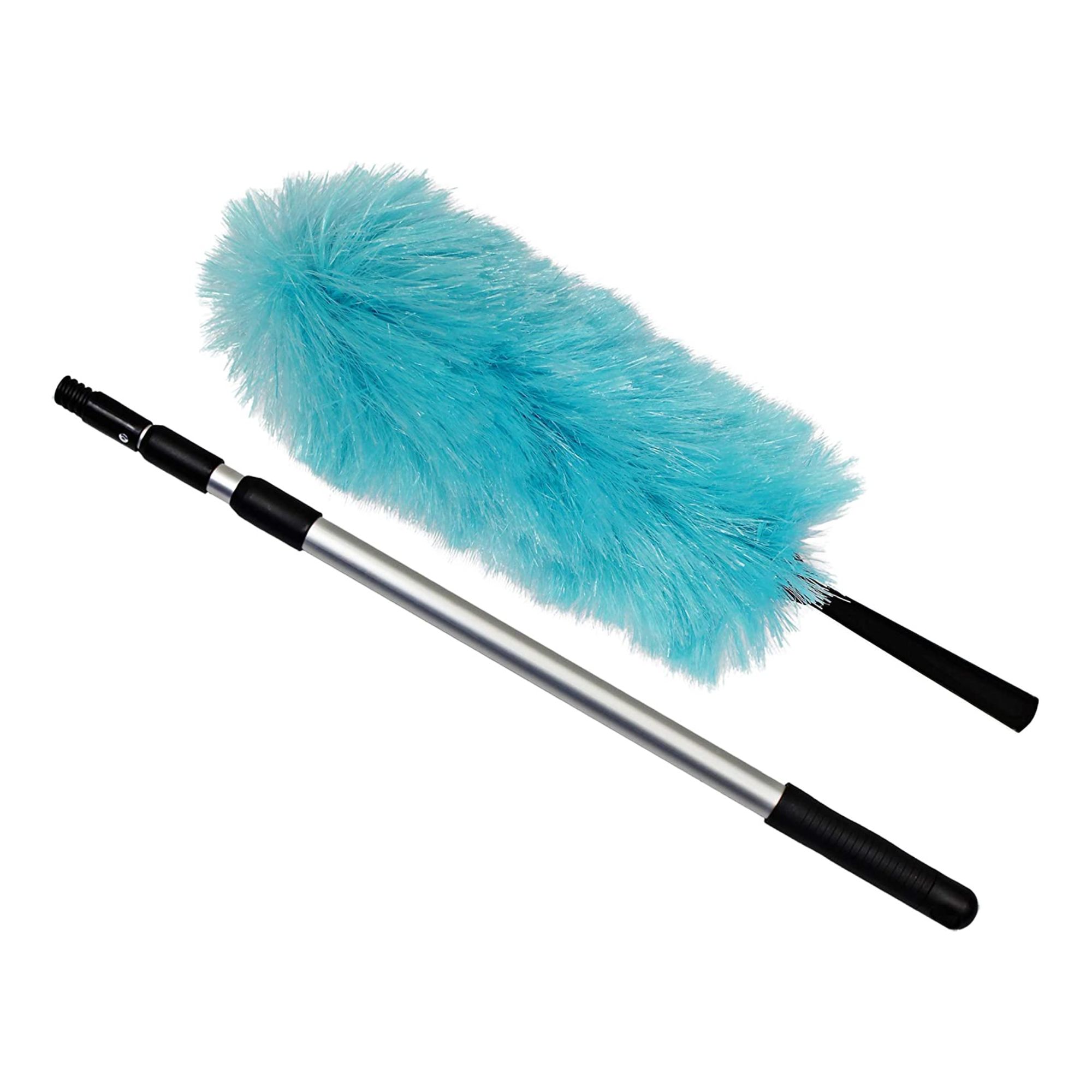5 ways to prevent dust in a bedroom – to settle allergies and sleep soundly
Dust is unavoidable, but there are some simple ways to limit it in the bedroom


Design expertise in your inbox – from inspiring decorating ideas and beautiful celebrity homes to practical gardening advice and shopping round-ups.
You are now subscribed
Your newsletter sign-up was successful
Want to add more newsletters?
A dusty bedroom can hinder your sleep, cause breathing problems, and generally make the room look terrible, so how do you prevent dust in a bedroom?
Between regularly cleaning a bedroom, and tweaking our daily habits, preventing dust in a bedroom is a great way to sleep better – but it will require some discipline to achieve and maintain. That being said, it is important to remember that eradicating dust entirely is near impossible, so there is only so much that can be done.
Here, professional cleaners explain how you can try to prevent dust in a bedroom with some smart tips to mitigate its impact.
How to prevent dust in a bedroom
Before trying to remove dust in your home, it is important to remember that preventing dust is incredibly difficult in any space we regularly use, says Angela Brown, cleaning expert and host of the Ask A House Cleaner podcast and blog.
‘A significant portion of indoor dust is composed of human skin cells shed on a daily basis,' she says. 'This, along with dust mites, microscopic creatures that feed on dust particles, are common in indoor environments, and desert areas in the country have it worse. They are significant sources of airborne dust, which can travel thousands of kilometers and affect air quality in other regions.’
Nevertheless, these five cleaning tips can help reduce the dust settling in your space and make your room a little bit more comfortable.

Angela Brown is a professional cleaner and the founder and CEO of Savvy Cleaner Training for house cleaners and maids. Since 2016, Brown has been training and consulting with cleaning clients in 31 countries and has since started a cleaning podcast, dedicated to helping answer those tough cleaning questions.
1. Clean regularly and deeply
Although hard work, cleaning your bedroom regularly and deeply is the best way to prevent dust or shift enough dust to alleviate your allergies, Angela Brown assures. This involves activities such as sweeping or vacuuming floors with an HVAC filter vacuum, dusting surfaces with a cloth or duster, and using appropriate cleaning products – such as a homemade cleaning spray designed to repel dust.
Design expertise in your inbox – from inspiring decorating ideas and beautiful celebrity homes to practical gardening advice and shopping round-ups.
‘While cleaning, it is also important to ensure good ventilation to allow disturbed dust to escape more easily, rather than just resettle on your newly polished surfaces,' she adds.
2. Use air purifiers
The obvious way to go when trying to prevent dust in a bedroom is to use the best air purifier you can afford. Air purifiers get rid of dust, but also help with airborne pollutants and allergens that can cause respiratory illness or disturb your sleep, says Nathaly Vieira, cleaning expert and founder of InspireClean.
If you don't have an air purifier or don't want to buy one, then air-purifying plants (typically the best plants for bathrooms) are the next best bet. ‘Adding a few plants to your bedroom can also help eliminate dust by naturally purifying the air. Plants are natural air filters that can absorb dust particles, and create a cleaner environment without the electricity costs – just be aware that this is not as quick or as effective as a machine designed for the job,' Nathaly continues.
3. Use an electrostatic duster
When trying to get rid of dust, the tools you use make a huge difference. Many experts recommend using a microfiber cloth for this, but you may wish to use an electrostatic duster, like this electrostatic duster at Amazon, to make sure you actually collect the dust, rather than spread it around, making them a great cleaning tip for allergy sufferers.
The tools are designed to attract and trap dust particles between the synthetic fibers by creating a static charge, explains Mark Melton, founder and CEO of Queen’s Carpet Cleaning. 'This has the added advantage of preventing the dust from lifting and settling elsewhere.'
4. Control humidity
Although you may not associate humidity with dust, high air moisture levels allow dust mites to thrive, so using a dehumidifier such as this Pure Enrichment Dehumidfier at Target is essential if you want to completely sanitize your bedroom, suggests Muffetta Krueger, professional cleaner and founder of Muffetta’s Domestic Assistants.
‘You should aim for humidity levels between 30% and 50% to kill dust mites, and prevent mold spores contributing to allergies,’ she says.
5. Wash your bedding regularly
Understanding how to wash bed sheets, and how often to wash your bedding, is vital if you want to prevent dust in your bedroom, as these are often one of the dirtiest and dustiest spots in the room, says Ryan Toffey of Advantage Maintenance, commercial janitorial services.
Try to avoid wafting your sheets when making your bed in the morning too, as this can throw dust up into the air, irritating your sinuses, and spreading dust around the room before you have the chance to clean it up.

The unit’s portable design is the perfect size to keep your bathrooms, closets, and other small rooms free from excess moisture year-round. Use regularly to maintain comfortable humidity levels and to keep your home free from allergens like dust mites, mold, and mildew.

This air purifier doubles as a fan, and has a HEPA filter built-in. It will keep the air clean as well as keep you cool. It allows you to be sure that the air you're breathing is as clean as possible.
Our Blueair Blue Pure Fan air purifier review has more details.
FAQs
What causes a lot of dust in a bedroom?
A bedroom can be one of the dustiest rooms in a house as we spend so long in there breathing, changing, brushing our hair, and losing skin cells. The dust we create then settles around the room and in our bedding, which is then redistributed when we make our bed each morning. As a result, this space needs cleaning more frequently to keep it hygienic.
Does opening windows help with dust?
Opening windows when dusting is a good idea to help dust that is thrown up into the air escape, however opening a window will not help to get rid of dust on its own. If anything, opening invites more dust, sand, pollen, and dirt inside making your room dirtier. If you want to get rid of dust and have fresh air, consider investing in an air purifier instead.
By cleaning regularly, using the right tools, and avoiding bedroom cleaning hacks that don't work, you can significantly reduce the amount of dust in your bedroom – even if you cannot prevent every single particle from plaguing your sleep space.

Chiana is Homes & Gardens’ kitchen appliances editor. With a lifelong passion for cooking and baking, she grew up experimenting in the kitchen every weekend with her baking-extraordinaire Mom, and has developed a great understanding of how tools and appliances can make or break your ideal relaxing kitchen routine.
